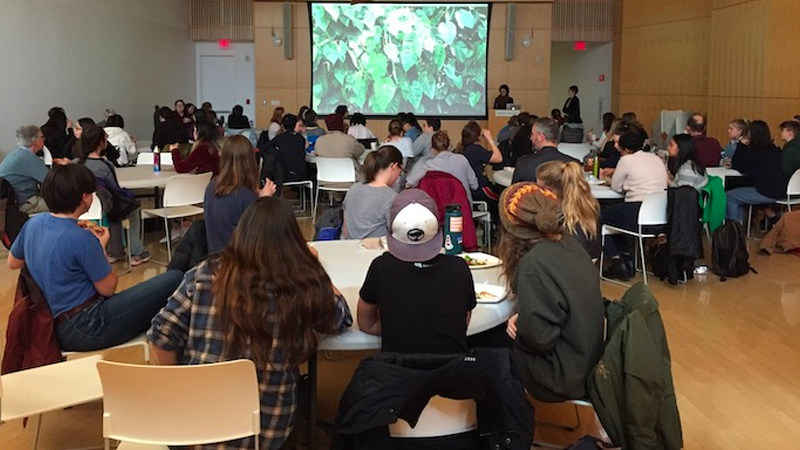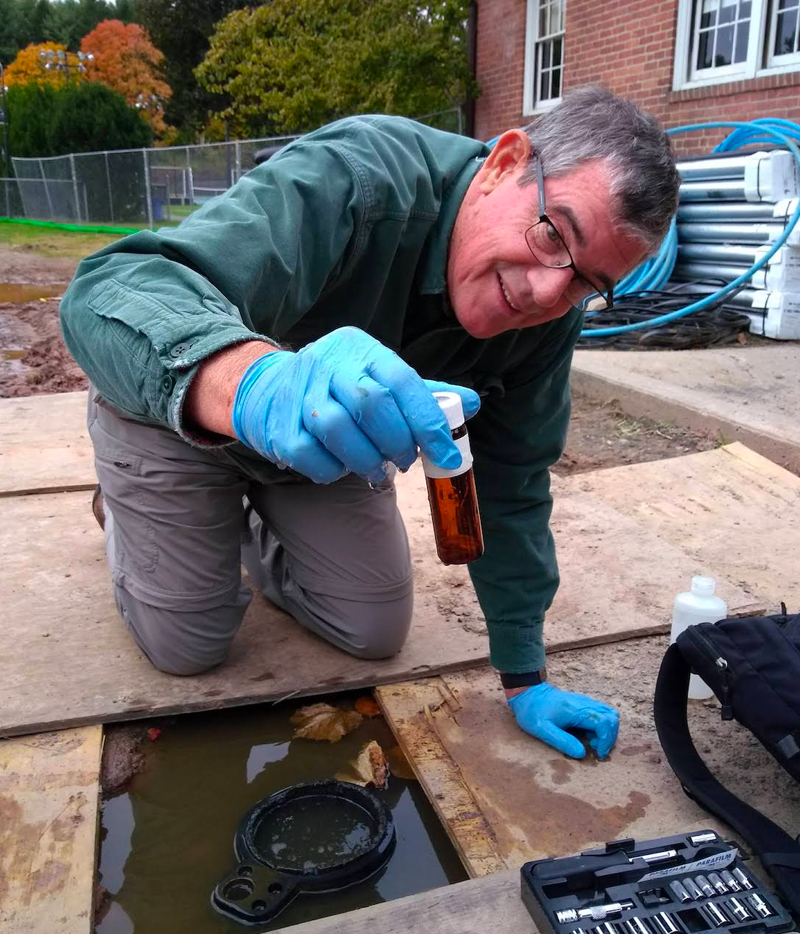For Faculty

Smith faculty are deeply committed to student learning. To increase the environmental literacy of all Smith students, the college supports the faculty in bringing environmental concepts and context to a wide variety of courses through curricular enhancement grants, fellowships, and providing environmental data for teaching and research.
Each year CEEDS invites proposals from faculty and teams of faculty who want to develop a new course or modify, revise or enhance an existing course. The program supports activities like new course development, new lectures or discussion topics, design of new assignments and projects, and incorporation of field trips and experiences. CEEDS can provide expertise, infrastructure, supplemental course funds and course development funding in support of these efforts.
We are particularly interested in proposals that highlight/examine the sustainability of our campus operations, that support our environmental concentration, that make use of the MacLeish Field Station or that connect to the college’s current strategic initiatives.
How to Apply
Please contact Joanne Benkley to discuss your ideas and questions. All proposals should include an articulation of anticipated educational outcomes, and recipients of funded proposals will be asked to report back on results. Submit applications by February 28, 2023. Applications after this date are also welcome and will be considered pending funding.
APPLY FOR A CURRICULAR ENHANCEMENT GRANT
Read more about how faculty have used their grants in the past.

Elisa Kim
Elisa Kim is an Assistant Professor of Art + Architecture and leads Smith’s architecture curriculum at both introductory and advanced levels.
As part of the 2019/2020 Year on Climate Change Professor Kim was awarded a CEEDS Curricular Enhancement Grant (CEG) to support her Advanced Architecture Design Studio: Transient Spaces—Terrestrial Bodies. While Kim’s fall advanced architecture studio always looks at the built environment through the lens of transient populations, in the fall of 2019, the studio aimed to specifically engage issues of migration and mobility in the face of sea level rise along coastal Massachusetts.
Students in Kim's class performed research and analysis to develop physical models and drawings that they installed and presented at the Year on Climate Change’s conference centered on “Climate Equity and Justice: Solutions in Action”. Through the course students were given the opportunity to visit coastal Massachusetts to bear witness and imagine, and then develop skills in applied design research, analysis, and techniques to synthesize information from disparate fields.
The CEEDS Faculty Research Fellowship program invests in faculty and connects their research to our campus and community challenges. The premise of this investment is that research can bridge theory and practice, and enhance student learning for many years to come.
Each year, CEEDS appoints 1-2 Smith faculty as CEEDS Faculty Research Fellows. These fellows join a community of engaged faculty who use Smith’s distinctive campus resources and the “campus as classroom” model to advance our understanding of climate change and climate impacts. In the summer of their appointment, faculty are provided with summer support, student summer undergraduate research fellows and research funds to support the dissemination of their research findings on and off campus.
Please contact Andrew Berke to discuss your ideas and questions.

Environmental Monitoring
To support research in the environmental sciences and to improve quantitative literacy among all students at Smith College, CEEDS supports an environmental monitoring program. Data on the environments around Smith are made available to faculty and students for use in courses and projects. Several sites exist for continuous and past collections of local environmental data including weather and seismic conditions at the MacLeish Field Station, along with weather data on the roof of McConnell Hall. A number of live webcams are available, some of which can be used for studying birds. Additionally, periodic monitoring equipment along the Mill River has measured and recorded water chemistry.
The Smith College Spatial Analysis Lab (SAL) supports all geographic information systems (GIS) for geospatial analysis of environmental data.
If you know of additional environmental or sustainability focused data that exist for our local area, please let us know!
We can support your work to identify, procure, install and monitor environmental monitoring equipment. Contact Paul Wetzel, Manager of the MacLeish Field Station, with specific questions regarding your environmental monitoring needs.
